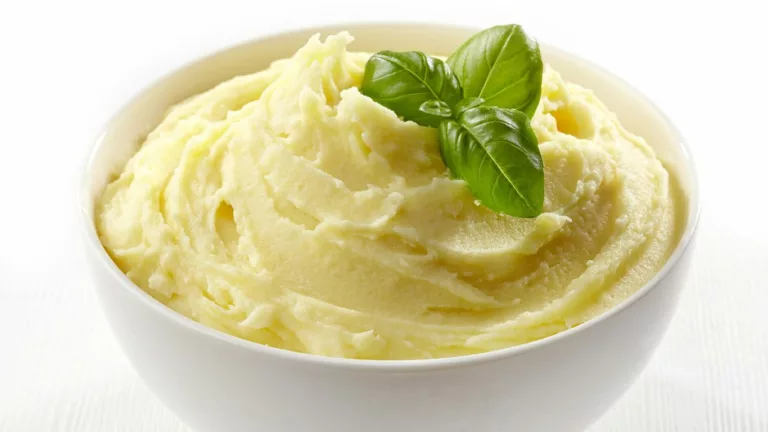Best GERD-Safe Foods for Toddlers: Nutrient-packed & Easy-to-digest Options
If you’re a parent dealing with a toddler who has GERD (Gastroesophageal Reflux Disease), you know how tricky mealtime can get. Finding the best GERD-safe foods for toddlers can feel like navigating a minefield—one wrong bite, and you’re dealing with tummy aches, reflux flare-ups, and sleepless nights. Trust me, I’ve been there, guiding parents who struggle with picky eaters and sensitive little tummies. But don’t worry, I’ve got you covered! This guide will help you discover GERD-friendly food options that are gentle on your child’s stomach while still being tasty and nutritious.
Understanding GERD in Toddlers
Before we dive into the food list, let’s quickly understand what GERD really is in toddlers. It’s not just simple acid reflux—it’s when acid reflux happens frequently, causing discomfort, possible feeding issues, and even long-term digestive problems. Some kids outgrow it, while others need careful dietary management.
The biggest triggers? Acidic, fried, and processed foods. That’s why choosing the right foods can make all the difference. With the right diet, your toddler can enjoy meals without the pain and discomfort of reflux episodes.
Key Principles of a GERD-Safe Diet

When selecting foods for a toddler with GERD, the goal is to reduce acid production, prevent irritation, and ensure easy digestion. Here are some key principles I always recommend to parents:
- Low-acid foods: Stay away from citrus fruits, tomatoes, and anything overly tangy.
- Easy-to-digest options: Choose soft, gentle foods that won’t sit heavily in the stomach.
- High-nutrient choices: GERD-safe doesn’t mean nutrient-deficient! Focus on balanced meals.
- Watch portions: Small, frequent meals are better than large, heavy ones.
- Avoid fried and fatty foods: These slow digestion and increase reflux risk.
Best GERD-Safe Foods for Toddlers

Let’s get into the good stuff—what foods are actually safe for your little one? Based on my experience, here are some toddler-approved, GERD-friendly options that parents swear by:
Fruits That Are Gentle on the Stomach
Not all fruits are bad for GERD! Some are actually great choices:
- Bananas: A top choice—non-acidic, easy to digest, and packed with potassium.
- Pears: Naturally low in acidity and fiber-rich for better digestion.
- Melons: Cantaloupe and honeydew are soothing and hydrating.
- Apples (peeled): The skin can be tough, but peeled apples are a gentle snack.
Vegetables That Won’t Trigger Reflux
Veggies are essential, but some (like tomatoes and onions) can be harsh. Instead, try these:
- Sweet potatoes: Nutrient-dense and naturally mild on the stomach.
- Carrots: Cooked carrots are gentle, slightly sweet, and well-tolerated.
- Zucchini: Soft and easy to mash, great for little eaters.
- Green beans: A mild veggie that provides fiber without irritation.
Protein Sources That Are Toddler-Friendly
Protein is important for growth, but fatty meats can be a GERD trigger. Here are safer options:
- Skinless chicken: Baked, steamed, or boiled—lean and easy to digest.
- Turkey: A mild alternative to chicken, just as gentle on digestion.
- Eggs (without yolk for sensitive tummies): Scrambled egg whites are a great protein source.
- Tofu: Soft, mild, and packed with plant-based protein.

Best Grains for GERD Management
Not all carbs are bad! Some grains actually help with digestion:
- Oatmeal: A great breakfast choice—fiber-rich but gentle.
- Whole wheat bread (if tolerated): Opt for plain, soft varieties.
- Rice: White or brown rice is a neutral, easy-to-digest carb.
- Pasta (plain, without heavy sauces): Simple and reflux-friendly.
Hydration Tips: What Should Your Toddler Drink?
Hydration is just as important as solid foods. But GERD means saying no to acidic juices and fizzy drinks. Instead, stick to:
- Water: The best option—no acidity, no problems.
- Mild herbal teas: Chamomile or fennel tea can be soothing (check with your pediatrician).
- Diluted pear juice: If your toddler wants something sweet, pear juice is a safer choice.
- Oat milk (unsweetened): A great non-dairy option for kids with reflux.
How to Make GERD-Safe Meals Fun and Tasty for Toddlers

Let’s face it: toddlers are picky eaters, and convincing them to eat their food is often a battle! But don’t worry, it’s not all doom and gloom. With a little creativity, you can make GERD-safe meals exciting, colorful, and even fun for your toddler. I’ve worked with many parents to turn mealtime into something their kids look forward to. Here are some simple tricks to keep things fresh and appealing:
1. Get Creative with Shapes and Colors
Toddlers love things that are visually appealing. Try cutting fruits, vegetables, and even sandwiches into fun shapes using cookie cutters. You’d be surprised at how much a little star-shaped apple or a smiley face made out of carrots can get your toddler excited to eat! The more colorful the plate, the more likely they are to give it a try. Use the natural colors of GERD-safe foods like orange sweet potatoes, green zucchini, and pale bananas to create a rainbow of choices.
2. Make Smoothies That Are Both Tasty and Gentle
If your toddler’s not too keen on eating whole fruits or veggies, smoothies are a fantastic option. You can sneak in a variety of GERD-safe fruits like bananas, pears, and melons, and even add in some spinach or zucchini without them noticing! Just be sure to avoid citrus fruits or anything too acidic. A smoothie with oat milk, a little honey, and some ice cubes can be a refreshing treat that’s easy on the stomach.
3. Sneak in Nutrients with Soups and Stews
Warm, comforting, and easy to digest, soups and stews are a perfect solution for toddlers with GERD. You can blend vegetables like carrots, sweet potatoes, and zucchini into a smooth soup base, and even add lean protein like chicken or turkey for an extra boost of nutrition. The best part? You can freeze them in individual portions for easy meal prep. If your toddler’s a fan of dipping, serve the soup with a side of whole grain crackers or a slice of GERD-friendly bread. Simple, satisfying, and GERD-safe!
Foods to Avoid for Toddlers with GERD

Now that we’ve covered the GERD-safe foods, let’s talk about what to avoid. As much as you want to introduce new flavors and meals to your toddler, there are certain foods that can make GERD symptoms worse and lead to discomfort. Here’s a quick rundown of foods that should stay off the menu for now:
1. Acidic Fruits
Citrus fruits like oranges, lemons, and grapefruits are known GERD triggers. They can increase acid production in the stomach and irritate the esophagus. While they’re packed with vitamin C, they’re just too harsh for little tummies already dealing with reflux. If your toddler craves something fruity, opt for milder fruits like pears, apples (peeled), or melons.
2. Fried and Fatty Foods
Fried foods, while often delicious, are a big no-no for GERD sufferers. They can slow down digestion, making it easier for stomach acid to back up into the esophagus. Foods like french fries, fried chicken, or anything drenched in heavy oils are tough on the stomach. Stick with baked, grilled, or steamed alternatives to keep things reflux-friendly.
3. Spicy and Seasoned Foods
Spicy dishes might seem tempting for family meals, but they can seriously upset a toddler’s digestive system. Hot sauces, chili powder, or any spicy seasonings can lead to acid reflux and discomfort. When cooking for a toddler with GERD, it’s best to keep spices to a minimum. Fresh herbs like basil or thyme can add flavor without the heat, keeping your toddler’s meals gentle yet tasty.
4. Dairy (If Tolerated)
Dairy can be a bit tricky. Some toddlers with GERD tolerate dairy just fine, while others may experience symptoms like bloating, gas, or even reflux after consuming milk or cheese. If dairy seems to irritate your toddler’s reflux, consider switching to lactose-free milk or non-dairy alternatives like oat or almond milk (just check for added sugars). Opt for mild cheeses, like mozzarella or cottage cheese, if dairy is a staple in your toddler’s diet.
5. Tomato-Based Products
Tomatoes are highly acidic, and for toddlers with GERD, they’re best avoided. This includes pasta sauces, ketchup, and even tomato-based soups. If your toddler loves pasta, try using a mild, creamy sauce (such as a white sauce made with oat milk or a small amount of butter) instead of tomato-based ones. There are also plenty of GERD-friendly veggie alternatives you can explore, like mashed sweet potatoes or pureed cauliflower!
How to Spot GERD Symptoms in Toddlers
As a parent, it’s essential to be aware of the signs that your toddler’s GERD might be acting up, especially since younger children might not have the words to describe what they’re feeling. Here are a few common symptoms to look out for:
- Frequent Spitting Up or Vomiting: While occasional spitting up is normal for babies, if it continues beyond infancy or happens regularly after meals, it might be GERD.
- Excessive Fussiness: If your toddler seems uncomfortable, irritable, or cries a lot, it could be due to stomach discomfort from reflux.
- Coughing or Wheezing: Sometimes, GERD can lead to coughing or even wheezing, especially when lying down.
- Difficulty Sleeping: If your toddler wakes up often or has trouble falling asleep due to stomach pain, GERD could be the culprit.
- Refusal to Eat or Drink: If your toddler starts refusing meals or snacks, it could be because they’re associating eating with discomfort.
If you notice any of these symptoms consistently, it’s always a good idea to check in with your pediatrician to rule out GERD or discuss treatment options. Early intervention is key to managing reflux and ensuring your toddler grows and thrives without discomfort.
Tips for Successfully Transitioning Your Toddler to a GERD-Safe Diet

Transitioning your toddler to a GERD-safe diet doesn’t happen overnight, but with a little patience, planning, and creativity, you’ll soon have a routine that works. Trust me, I’ve guided so many parents through this exact process, and it can be easier than you think once you get into the groove. Here are some tips to make this transition smooth for both you and your toddler:
1. Start Slow and Gradual
It’s tempting to rush into the world of GERD-safe foods and overhaul your toddler’s entire diet all at once, but I recommend taking a slower approach. Start by eliminating one or two GERD-triggering foods at a time. This gives your toddler’s digestive system time to adjust, and you’ll be able to monitor their reactions to see what works best. Gradually replace those foods with GERD-friendly alternatives, and over time, you’ll have a completely new, more reflux-friendly menu without causing too much shock to their system.
2. Be Consistent, but Flexible
Consistency is key when managing GERD through diet, but that doesn’t mean you have to be rigid. While it’s important to avoid trigger foods, there may be occasions where your toddler gets a taste of something “off-limits,” and that’s okay (within reason!). The goal is long-term management, so don’t beat yourself up if you have a “cheat day.” Instead, focus on making GERD-safe foods a regular part of their routine, while keeping track of what works and what doesn’t.
3. Involve Your Toddler in the Process
Toddlers love to feel like they’re in charge, so why not let them help with meal prep? Whether it’s stirring the pot or choosing from a selection of safe snacks, involving your toddler in the process can make them more interested in trying new foods. Plus, the more they’re involved, the more they’ll develop a positive relationship with the new food choices. It’s a win-win!
4. Keep Meals Simple but Flavorful
I know it’s tempting to go all out with complex, elaborate dishes, but simple meals often work best. Keep your toddler’s meals straightforward with ingredients that are easy to prepare but still pack a punch in terms of flavor. For example, roasted chicken with a side of mashed sweet potatoes and steamed carrots makes for a nutritious, balanced meal that doesn’t require much effort. Adding a pinch of safe herbs like basil or oregano can elevate the taste without triggering reflux.
5. Monitor and Adjust Based on Your Toddler’s Reactions
Every child is different, and what works for one might not work for another. As you introduce new foods, pay close attention to any signs of discomfort or reflux. If something seems to irritate their system (even if it’s generally considered GERD-safe), don’t hesitate to remove it from the menu and try something else. GERD management is a learning process, and being flexible is key to finding what works best for your child.
Why Professional Guidance Matters
Managing a toddler’s GERD symptoms through diet can be tricky, especially if you’re unsure about which foods are safe or how to balance their nutrition. While I’ve shared a lot of tips and tricks based on my experience, I always recommend seeking professional guidance from a pediatrician or a pediatric dietitian when it comes to long-term GERD management. These experts can help tailor your toddler’s diet to their specific needs and provide personalized recommendations that will make a world of difference.
Working with a Pediatric Dietitian
A pediatric dietitian has the expertise to help you create a GERD-friendly meal plan that ensures your toddler is getting the right nutrients while avoiding triggers. They can also help you manage any food sensitivities or allergies your toddler might have. If your child is experiencing frequent GERD flare-ups despite dietary changes, a dietitian can help adjust the meal plan or suggest additional strategies to help alleviate discomfort.
When to Seek Medical Help
Even with the best diet and care, sometimes GERD symptoms may persist or worsen. If your toddler experiences severe symptoms like frequent vomiting, difficulty swallowing, or persistent chest pain, it’s important to seek medical attention. A pediatrician might suggest medications to manage acid reflux, or they may refer you to a pediatric gastroenterologist for more specialized care.
Staying Positive Through the Process
Managing GERD in toddlers isn’t always easy, and it can be frustrating at times. But remember, you’re doing an amazing job. Parenting a toddler with GERD requires patience, creativity, and a lot of trial and error. Just know that with the right foods and support, your toddler can still enjoy mealtime without the discomfort of reflux. Keep up the good work, and take it one day at a time!

References
Disclaimer
All content in this article is for informational purposes only and does not substitute professional medical advice. If your toddler is experiencing significant health issues related to GERD, please consult with a pediatrician or healthcare professional for a tailored treatment plan.

Camellia Wulansari is a dedicated Medical Assistant at a local clinic and a passionate health writer at Healthusias.com. With years of hands-on experience in patient care and a deep interest in preventive medicine, she bridges the gap between clinical knowledge and accessible health information. Camellia specializes in writing about digestive health, chronic conditions like GERD and hypertension, respiratory issues, and autoimmune diseases, aiming to empower readers with practical, easy-to-understand insights. When she’s not assisting patients or writing, you’ll find her enjoying quiet mornings with coffee and a medical journal in hand—or jamming to her favorite metal band, Lamb of God.







